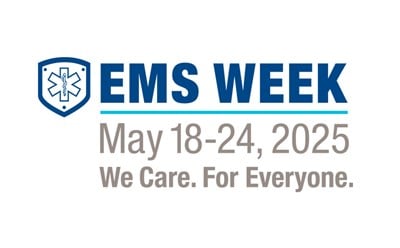WASHINGTON, D.C.—The American College of Emergency Physicians (ACEP) and the Medical Association of Georgia (MAG) today filed suit against Anthem’s Blue Cross Blue Shield of Georgia in federal court in an effort to compel the insurance giant to rescind its controversial and dangerous emergency care policy that retroactively denies coverage for emergency patients.
Over the past year, Anthem implemented its policy in Georgia and five other states, leaving patients who sought emergency care responsible for paying their entire bills if the insurance company determined after retrospective reviews that their diagnoses were not truly emergencies. Along with Georgia, the other states include Indiana, Kentucky, Missouri, New Hampshire and Ohio.
According to the lawsuit, Anthem BCBS of Georgia’s policy violates the prudent layperson standard, that is federal law requiring insurance companies to cover the costs of emergency care based on a patient’s symptoms – not their final diagnosis. The company uses a pre-determined list of undisclosed diagnoses to make its decisions. Additionally, the lawsuit contends that the company is also violating the 1964 Civil Rights Act because the denials disproportionally affect members of protected classes’ access to emergency care.
“We can’t possibly expect people with no medical expertise to know the difference between something minor or something life-threatening, such as an ovarian cyst versus a burst appendix,” said Paul Kivela, MD, FACEP, president of ACEP. “ACEP and MAG have tried multiple times to work with Anthem to express these concerns and urge them to reverse this policy, and they have refused. We felt we had no choice but to take action to protect our patients, and therefore are asking the federal court to force Anthem’s BCBS of Georgia to abide by the law and fulfill their obligation to their policyholders.”
Frank McDonald, MD, MBA, president of MAG, reports that more than 70 percent of the physicians polled in Georgia do not believe the average patient is knowledgeable enough to make judgments about what qualifies as a medical emergency.
“In an emergency, seconds count!” said Dr. McDonald. “Even stopping to consider if it’s an emergency could mean the difference between life and death. Patients should never hesitate to seek emergency care out of fear of getting a large bill.”
According to a 2016 ACEP survey, one in four Americans said they had medical conditions that got worse after they delayed emergency care.
The prudent layperson standard not only safeguards patients by requiring health insurers to base claims payments on a patient’s symptoms – and not their final diagnosis – it also prohibits those insurers from requiring patients to seek prior authorization before they seek emergency care.
ACEP is encouraging patients who have had their health insurance coverage denied for an emergency to go to www.FairCoverage.org to share their stories.
 American College of Emergency Physicians
American College of Emergency Physicians







